Explore the unseen difficulties humans face in surviving on Mars and venturing beyond into the vast unknown of space.

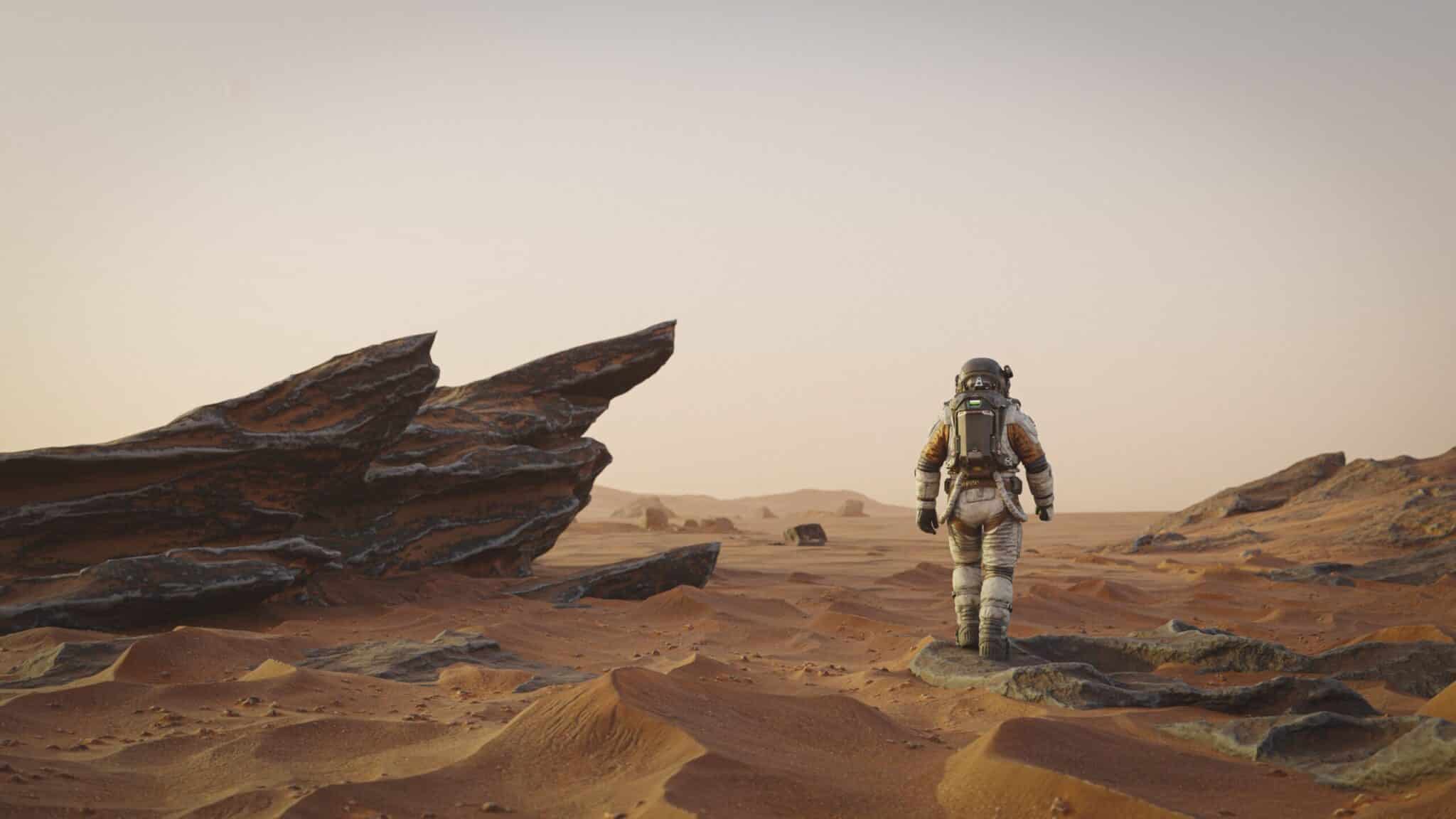

Humanity’s ventures into space have so far amounted to a small but remarkable beginning. Decades after our first steps on the Moon, the dream of taking a giant leap into deep space remains both technically and biologically daunting. Modern space pioneers such as Elon Musk envision human settlements on Mars, yet the greatest barriers are not mechanical—they are rooted within the human body itself.

Living beyond Earth’s atmosphere subjects the body to invisible risks that start long before landing on any distant planet. From muscle decay to psychological strain, the journey between worlds is more than an engineering challenge—it’s a biological transformation.

During a one-way journey to Mars, lasting roughly six to nine months, astronauts exist in an environment devoid of gravity. In such conditions, muscles deteriorate and bone density gradually declines, mirroring severe osteoporosis on Earth. The absence of gravity confuses the body’s orientation system, often leading to space adaptation syndrome—a state of dizziness, nausea, and disorientation that may persist even after the brain adjusts.
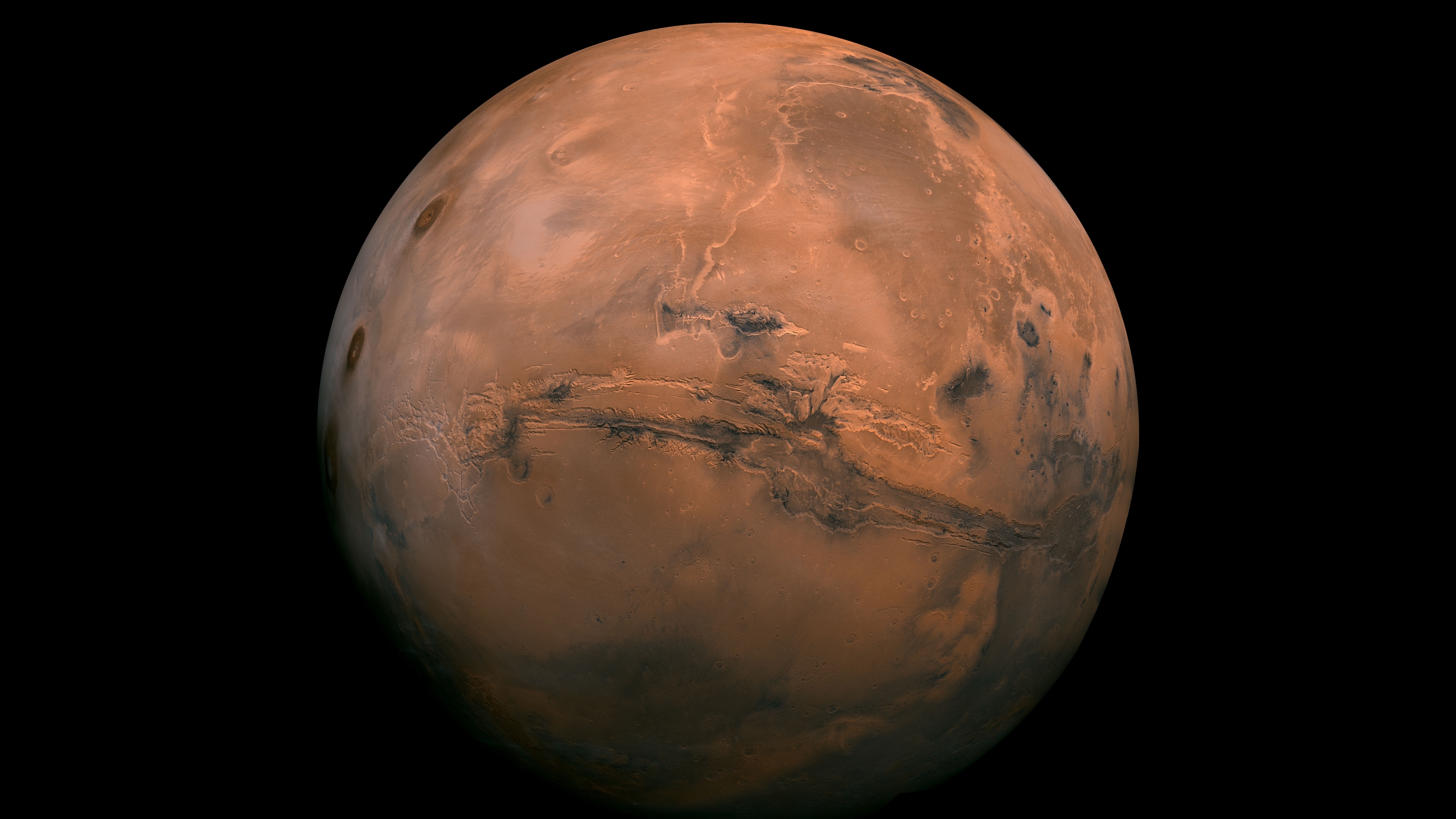

Spinal elongation, one of the more peculiar outcomes of weightlessness, can make astronauts slightly taller but often causes intense back discomfort. No part of the body escapes these effects, as even the distribution of fluids undergoes dramatic shifts.
Without gravity’s pull, bodily fluids drift upward, producing swollen faces and thinner legs. The increased pressure inside the skull can impair vision, sometimes permanently. This redistribution also disrupts cardiovascular balance—heart muscle mass decreases, blood volume drops, and upon returning to Earth’s gravity, astronauts frequently experience sudden fainting spells.
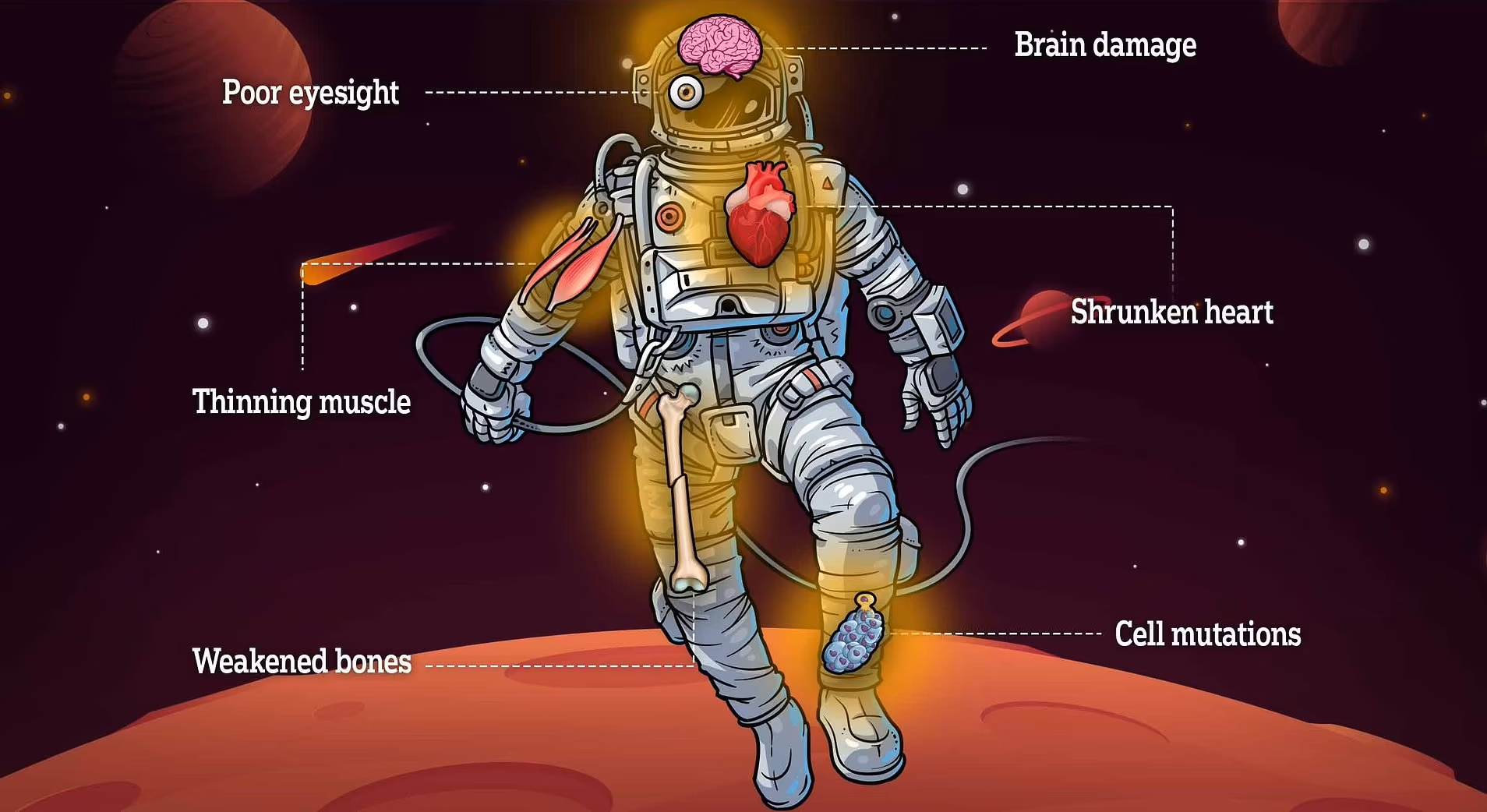
Space exposure acts upon the body at the genetic level. Studies comparing identical twins—one stationed on Earth and one in orbit—revealed shifts in gene expression linked to DNA repair and immune responses. Though some cellular processes temporarily adapted, many rapidly regressed once back on Earth. Long-term exposure weakens immunity and may heighten the risk of inflammation and certain cancers.
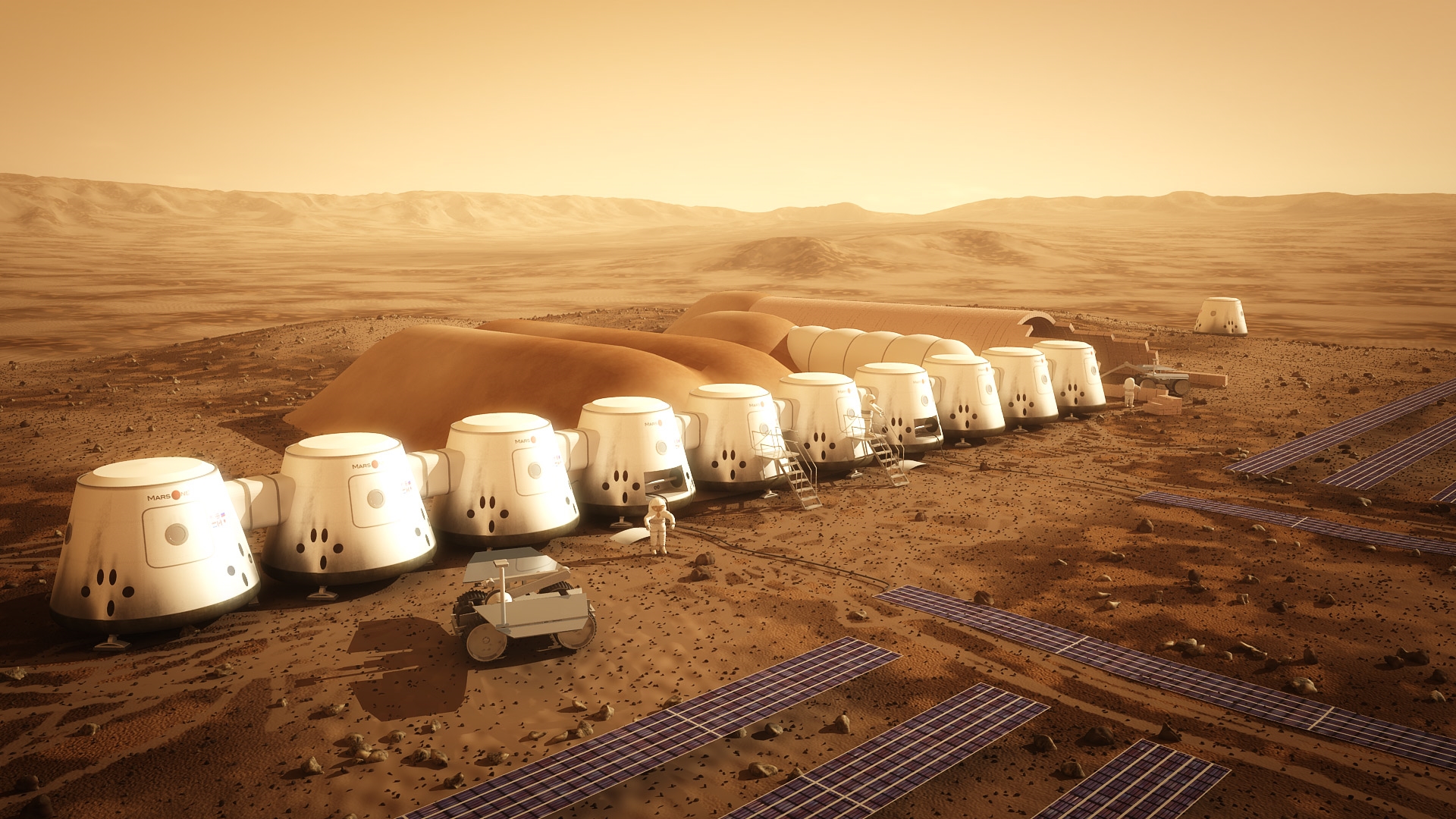
Beyond Earth’s magnetic shield, travelers are assaulted by galactic and solar radiation. These energetic particles can fragment DNA, damage tissues, and accelerate aging. Historical solar storms have shown that a single strong wave could be deadly during deep-space missions. Despite advancements in shielding materials—ranging from water layers to advanced polymers—absolute protection remains out of reach.
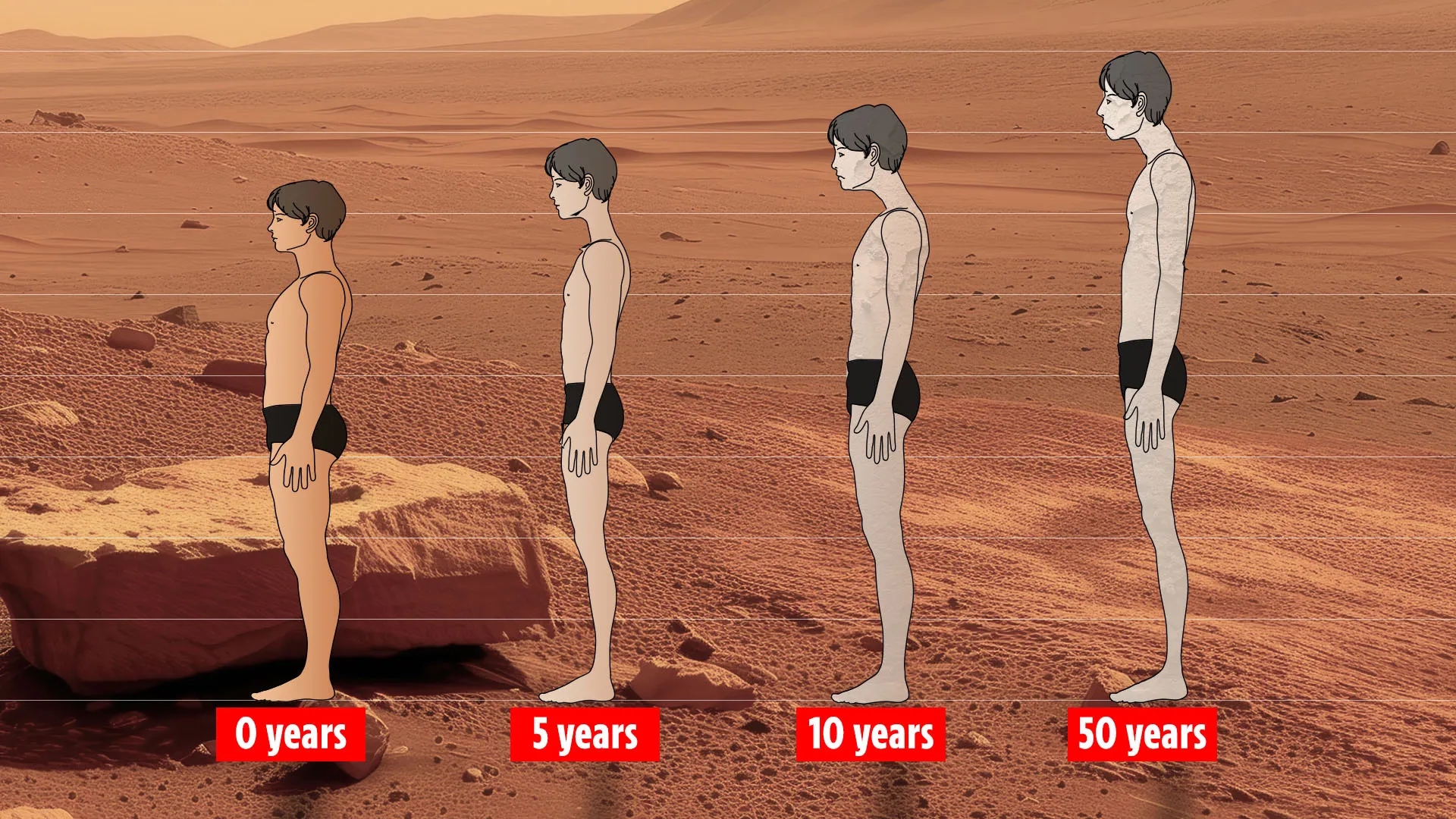
Long-term isolation could prove as damaging as radiation. Prolonged confinement millions of kilometers away from Earth transforms even trained astronauts into emotional test subjects. Future Mars crews will face long communication delays, meaning immediate help in emergencies may be impossible. Psychological resilience therefore becomes as critical as physical health.
To guard against muscular and skeletal decay, astronauts aboard the ISS commit over two hours daily to rigorous exercise. Still, inactivity during the remaining hours causes continued tissue loss. Scientists are developing artificial gravity modules, electrically stimulated workouts, and advanced nutrition to counteract the effects. However, technology can only delay—not eliminate—the biological toll of space travel.
Should humans dwell on Mars for years, lower gravity will provoke sweeping anatomical and metabolic changes. Within five years, residents may experience weakened muscles, slower circulation, and reduced bone density. After a decade, the body might adapt structurally—gaining elongated spines and altered posture—making a return to Earth increasingly difficult. Over generations, evolution could give rise to a new variant of humanity—lighter, taller, and permanently bound to Mars.
Turning humanity into a truly multiplanetary species demands more than planetary engineering—it requires conquering biology itself. The International Space Station orbits only 400 kilometers from Earth, yet Mars lies roughly 225 million kilometers away. The immense distance, cyclical launch windows, and years-long travel times amplify every hazard. Even if we reach the Red Planet, sustaining life there will challenge not just technology but the essence of human endurance.
Before we take our next leap into the cosmos, we must understand the price our bodies and minds will pay for such a journey. The real voyage is not measured in distance, but in how far human resilience can evolve.























Sigortahaber.com, sigorta sektöründeki en güncel haberleri, analizleri ve gelişmeleri tarafsız bir bakış açısıyla sunan bağımsız bir haber platformudur. Sigorta profesyonellerine, acentelere ve sektöre ilgi duyan herkese doğru, hızlı ve güvenilir bilgi sağlamayı amaçlıyoruz. Sigortacılıktaki yenilikleri, mevzuat değişikliklerini ve sektör trendlerini yakından takip ederek, okuyucularımıza kapsamlı bir bilgi kaynağı sunuyoruz.